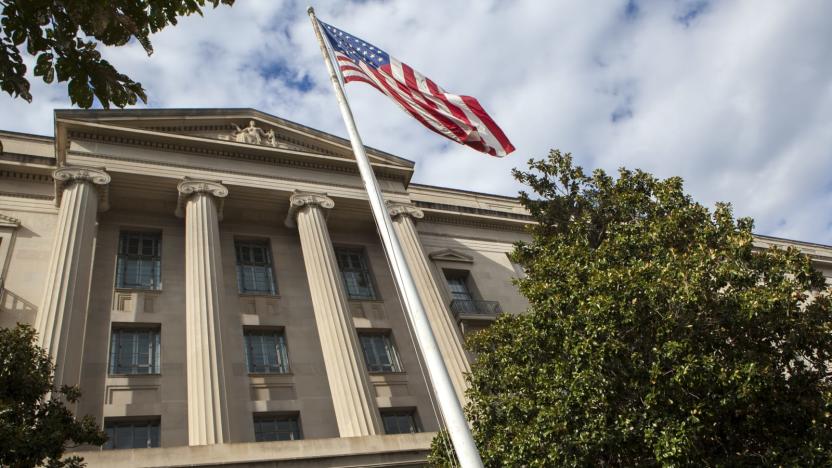pyramid scheme
Latest

US arrests cryptocurrency exec over 'multibillion-dollar' fraud
Cryptocurrency scams are nothing new, but they're rarely as large as this. US law enforcement has arrested Konstantin Ignatov over a fraud charge relating to OneCoin, the cryptocurrency he helped found. Ignatov, his sister Ruja Ignatova (also charged, but hiding) and others allegedly orchestrated a "multibillion-dollar pyramid scheme" where people received commissions for persuading people to buy OneCoin packages that themselves were junk. OneCoin reportedly rigged prices, sold people non-existent coins and didn't even have a true blockchain to manage the currency.

Global Verge wins $43 million lawsuit against mystery MVNO Zer01
When we first heard about Zer01 it was set to launch at a time when other MVNOs were disappearing. (Remember Amp'd Mobile, or Helio?) Zer01 was pledging unlimited voice and data for just $69.99 a month, before most other carriers had their $99 plans, but ultimately never delivered a thing. Apparently Global Verge was similarly left in the dark, but unlike the rest of us it had invested $170,000 in Zer01 in exchange for selling wireless services as part of its multi-level marketing company. Global Verge had been allowing its "e-associates" (people who pay for the right to hawk Global Verge's wares) to shill for Zer01 wireless, which of course never delivered a single call. There are accusations flying fast and frantic about which of the two companies is the worst offender here, but the District Court in Clark County, Nevada at least believes that it's Zer01 reneging on its promises, awarding $43 million to Global Verge for breach of contract and various other legal wrongdoings. Congrats, GV, and good luck collecting.

LGJ: Dawn at the Great Pyramid (Scheme)
Mark Methenitis contributes Law of the Game on Joystiq ("LGJ"), a column on legal issues as they relate to video games: [Photo by exothermic] GDC 2010 has come and gone, but many of the discussions I had with various developers, publishers, attorneys and other great attendees have actually left me with some curious issues to explore with you here on LGJ. The first such issue is one that actually relates to the long-known (but always fuzzy) area of the law that deals with multi-level marketing systems, the more legitimate cousin of what are commonly known as "pyramid schemes." These are the slightly more legitimate looking cousin of the Ponzi scheme (most recently in the news because of Madoff), but nonetheless create a "business model" doomed to fail. Accordingly, there are statutes in nearly all 50 states and in many countries barring these types of arrangements. But why is this relevant to gaming at all? The advent of the referral model picked up by many social and online games is the potential problem area, and while the model itself may not suffer the same faults as a traditional pyramid scheme, it could nonetheless violate the laws in that area. After all, those laws don't contemplate digital goods, which can suffer no scarcity and basically no cost to product.

Real crimes in virtual worlds
Is it a crime to bilk people out of money in a ponzi scheme? Sure. Is it also a crime to bilk people out of 700 billion ISK of virtual cash using a similar scheme in massively multiplayer game EVE Online? That's the question discussed in a recent article on Gamers With Jobs.The scheme, which uses money from new investors to pay off initial backers before cutting and running, is pretty apparently against EVE's terms of service, which prohibits "obtaining goods from other players through misinformation, confusion, pressure or by taking advantage of basic trust." But the author at GWJ argues that the virtual money can be converted to real game-time cards with a value of $81,667, making the crime a very real one. What's more, the ill-gotten gains could be converted into cash through unofficial channels, and might well be taxable by the IRS.It may be hard to think that in-game money can be subject to real-world laws, but when people can make their living trading in virtual goods, the wall between real and virtual laws begins to break down. Should financial doings inside MMOs be regulated by the government, or should the feds stay out of the virtual realm?

